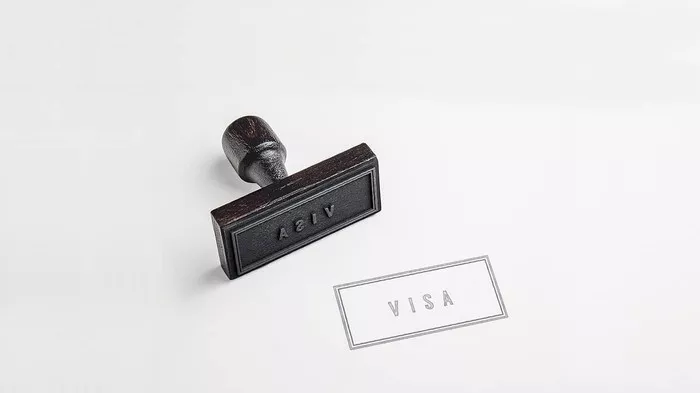In an increasingly interconnected world, the need for international travel has become ubiquitous. Whether it be for leisure, business, education, or family reunification, millions of individuals across the globe find themselves in need of visas to travel to different countries. However, one common concern that arises during this process is the time it takes to obtain a visa. Understanding the factors that influence visa processing times can alleviate anxiety and help individuals better plan their travels.
Understanding Visa Processing Times
The duration it takes to acquire a visa varies significantly depending on several factors, including the type of visa being applied for, the country of application, the applicant’s nationality, and the efficiency of the consulate or embassy processing the application. It’s essential to recognize that visa processing times are not set in stone and can fluctuate due to changes in policies, seasonal variations in application volume, and unforeseen circumstances such as security concerns or diplomatic tensions.
Factors Influencing Visa Processing Times
1. Type of Visa: Different types of visas have different processing times. For example, tourist visas may have shorter processing times compared to work or student visas, as they often require additional documentation and scrutiny.
2. Country of Application: The country where the visa application is submitted plays a crucial role in determining processing times. Some countries have streamlined processes and efficient diplomatic missions, resulting in faster processing times, while others may have bureaucratic hurdles or limited resources, leading to longer wait times.
3. Applicant’s Nationality: The nationality of the applicant can also impact processing times. Some countries have reciprocal agreements or visa facilitation programs that expedite the process for citizens of certain countries, while citizens of other nations may face more extensive background checks or administrative delays.
4. Application Volume: Consulates and embassies process a significant number of visa applications daily. During peak travel seasons or in regions with high demand for visas, processing times may be longer due to the sheer volume of applications that need to be reviewed.
5. Documentation Accuracy: Inaccurate or incomplete documentation can delay the visa processing process. It is essential for applicants to ensure that all required documents are provided correctly and meet the specific requirements of the visa category they are applying for.
6. Interview Requirements: Some visa categories may require applicants to attend an interview as part of the application process. Scheduling an interview appointment and waiting for an available slot can add to the overall processing time.
7. Security Clearance: In certain cases, particularly for visas related to sensitive industries or countries, applicants may undergo additional security screenings, which can prolong the processing time.
Average Processing Times for Common Visa Types
While it is challenging to provide precise figures due to the variability mentioned above, it is possible to outline general trends in visa processing times for common visa categories:
1. Tourist Visa: Tourist visas typically have shorter processing times compared to other visa types, ranging from a few days to a few weeks in most cases. However, during peak travel seasons, processing times may extend slightly due to increased application volume.
2. Student Visa: Student visas often require more extensive documentation and verification, leading to longer processing times. On average, it may take anywhere from a few weeks to a few months to obtain a student visa, depending on the country and educational institution.
3. Work Visa: Work visas usually involve complex procedures, including labor market assessments and employer sponsorship, which can significantly lengthen processing times. It is not uncommon for work visa applications to take several months to process, particularly for specialized or highly skilled occupations.
4. Family Reunification Visa: Visas for family reunification purposes typically have shorter processing times compared to other visa categories, as governments recognize the importance of family unity. However, processing times may vary depending on the relationship between the sponsor and the applicant, as well as the country’s immigration policies.
5. Business Visa: Business visas are often expedited to accommodate the needs of business travelers. Processing times can vary from a few days to a few weeks, depending on the country and the nature of the business activities.
Tips to Expedite the Visa Process
While visa processing times are influenced by various factors beyond an applicant’s control, there are certain steps individuals can take to expedite the process:
1. Submit a Complete Application: Ensure all required documents are included with the application and that they meet the specific requirements of the visa category.
2. Follow Instructions Carefully: Adhere to all instructions provided by the consulate or embassy regarding the application process, including photo specifications, payment methods, and interview requirements.
3. Provide Accurate Information: Double-check all information provided in the application form for accuracy and consistency. Any discrepancies or inaccuracies could lead to delays or even rejection of the application.
4. Plan Ahead: Apply for the visa well in advance of the intended travel date to account for potential processing delays. Avoid last-minute applications, especially during peak travel seasons.
5. Utilize Expedited Processing Services: Some countries offer expedited processing services for an additional fee. While this option may not be available for all visa types, it can significantly reduce processing times for urgent travel needs.
6. Seek Professional Assistance: Consider seeking assistance from immigration consultants or attorneys who specialize in visa applications. They can provide guidance on the application process and help navigate any complexities or challenges that may arise.
Conclusion
In conclusion, the time it takes to obtain a visa can vary widely depending on multiple factors, including the type of visa, the country of application, the applicant’s nationality, and the efficiency of the consulate or embassy processing the application. While it is challenging to predict exact processing times, understanding the factors that influence the process and following best practices can help minimize delays and ensure a smoother visa application experience. By planning ahead, providing accurate information, and utilizing available resources, individuals can navigate the visa process with confidence and ease.


